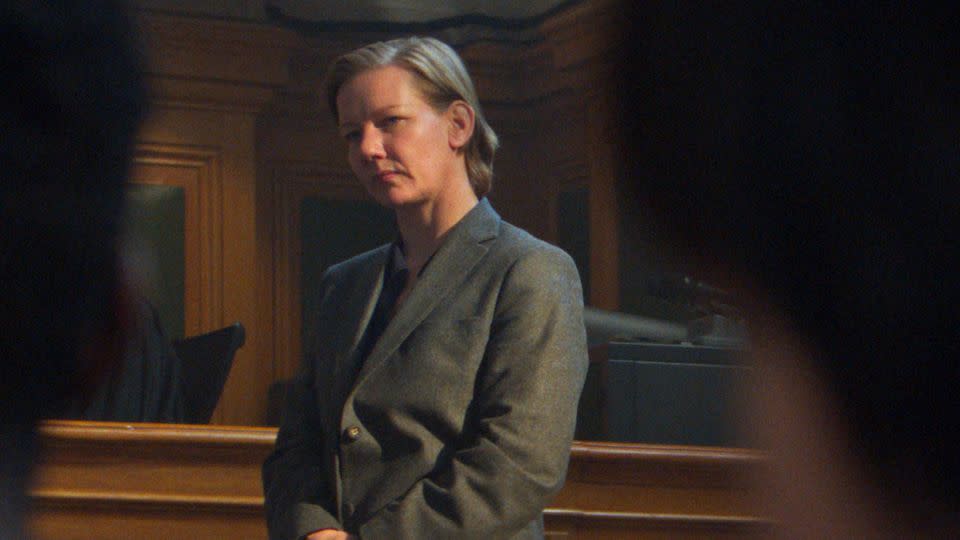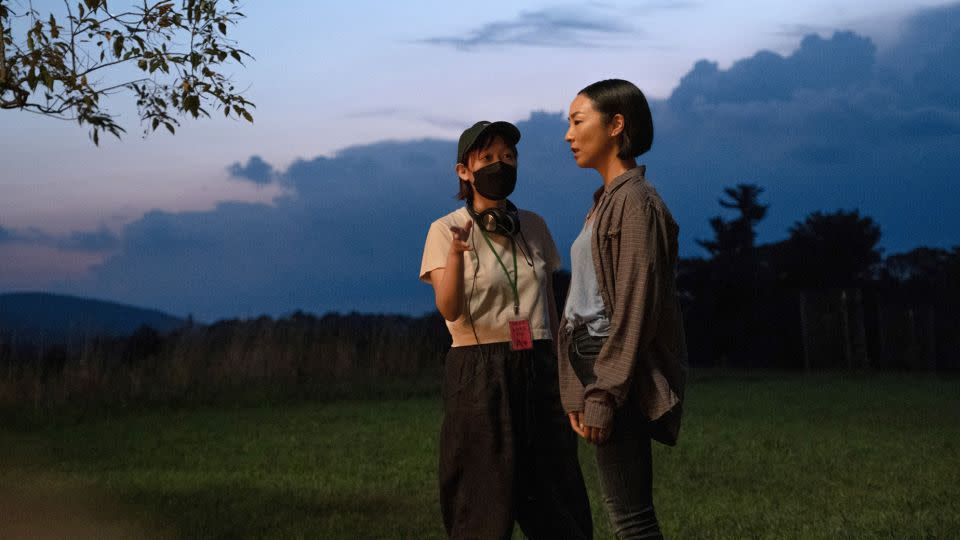Opinion: These three Oscar-nominated films couldn’t be more different. Together, they represent the change we need
Editor’s Note: Noah Berlatsky (@nberlat) is a freelance writer in Chicago. The views expressed here are his own. View more opinion on CNN.
This is the first year that three movies by women directors — Justine Triet’s “Anatomy of A Fall,” Celine Song’s “Past Lives” and Greta Gerwig’s “Barbie” — have received an Oscars best picture nomination.

Three is unprecedented. It’s a sign of real progress. But it’s also an indication of how limited progress has been. According to an analysis conducted by USC Annenberg Inclusion Initiative, women only directed 2.7% of the top 1,700 box office films in 2007. In 2023, that number grew … to a still-pitiful 12%.
The first woman-directed movie to be nominated for best picture was Randa Haines’ “Children of a Lesser God” in 1986. Since then, only 21 women-directed pictures have been nominated. After the Academy expanded its pool to 10 annual best picture nominees in 2009, there have been a handful of instances (2009, 2010, 2020, 2021) in which two movies by women directors have been nominated. In 2016, the Academy responded to criticism by trying to double the number of women and people in color in its ranks. It said it reached that goal by 2020 — but since then women in the Academy have grown by only one point, to 34%, according to New York Times reporting. People of color in the Academy have dropped a point, to 18%.
Given that context, it’s not an accident that each of the three women-directed films are about the difficulty of telling women’s stories in a world dominated by male power and male narratives. All three films question male conventions and genres in ways that show exactly why we need more films by, and more nominations for, women-directed films.

Triet’s “Anatomy of a Fall” is about a German novelist, Sandra (Sandra Hüller), accused of murdering her husband Samuel (Samuel Theis). The prosecution argues that Samuel was jealous of Sandra’s affairs with women, and of her success as a writer. After an argument, prosecutors say, Sandra pushed Samuel from a window.
For the prosecution, Sandra is a femme fatale — a sexually aggressive, ambitious, (too) intelligent woman who destroys the men who get in her way. They try to write her into films like Billy Wilder’s “Double Indemnity” (1944) or even David Fincher’s “Gone Girl” (2014), where the stories equate women’s brilliance and women’s violence.
Triet doesn’t entirely shut down that narrative — we never know for certain what Sandra did or didn’t do. But the film leaves open the alternate reading that Sandra is innocent, facing persecution precisely because of the default noir assumption that creative and smart women are a threat to men. The viewer is left to decide whether those old misogynist stories are true, and women creators can only create death, or whether other stories are possible.
Celine Song’s “Past Lives” also questions and reworks a genre dominated by male directors — not noir, but romance. The protagonist, Nora Moon (Greta Lee), meets the love of her life, Hae Sung (Teo Yoo), in middle school in South Korea. But Nora’s family leaves the country for the US, and the incipient romance never manages to “ro.” Instead, over the next two decades, Nora becomes a playwright and marries fellow writer Arthur (John Magaro).

The film is a story of nostalgic heartbreak; it mourns Nora’s distance from South Korea and from her past, and the disruption of her romance plot with Hae Sung. But it’s also a celebration of her determination and of her decision to pursue a career on her own terms, rather than letting the logic of that romance plot unilaterally shape her life. Arthur is a good man and loves Nora, too. Even Hae Sung says that he loves Nora for who she is and doesn’t wish her life were otherwise.
“Past Lives” regrets lives not lived, but also insists that women, and especially women creators, have more than one chance at life and at love. Nora, like Song, reworks the romance plot to make her own story. Refusing to let romance define her life is painful. But it’s leads to joy, too, and even to a different, if not necessarily better, love.
Triet rethinks noir, Song rethinks romance and Gerwig rethinks the blockbuster IP-driven franchise. In “Barbie,” a corporate-created living doll has to figure out how to (re)create herself and decide who she wants to be in defiance of the suits who want to put her in a (literal, pink) box. (The distributor of “Barbie” and CNN share a parent company, Warner Bros. Discovery.)
That’s an obvious metaphor for Gerwig herself, who makes her own movie, and her own Barbie, out of materials given to her by (male-dominated) corporate toy companies and a (male-dominated) studio system. The film’s bizarre narrative zips back and forth between Barbie’s female-ruled utopia and the real world; it sets up a Ken-led patriarchy just to overthrow it. The plot functions as a kind of vertiginous parody or repurposing of all those frantic action superhero IPs, but this time with frills and fabulous shoes.

The stories, genres and themes considered important and canonical in film have virtually all been established by men, because only men have had access to the connections and the capital needed to make major motion pictures. It’s no wonder then that Triet, Song and Gerwig are all, more or less explicitly, commenting on, struggling with and trying to clear away male genre assumptions in order to tell their own stories.
That doesn’t mean that women directors are less interesting or less original than male directors. On the contrary, the effort to rethink old narratives and old genres is why “Past Lives,” “Anatomy of a Fall” and “Barbie” are much more interesting and rewarding than last year’s standard, great man Oscar-bait biopics like Bradley Cooper’s “Maestro” and Christopher Nolan’s “Oppenheimer” or the default enemies-to-friends clichés of Alexander Payne’s “The Holdovers.”
Film has stifled women creators for virtually its entire history as an industry. That’s bad as a matter of justice and equity. And it’s also bad for art. Triet, Song and Gerwig have proved that women directors are uniquely positioned to question and rethink old genres, old stories and old ideas. They also make a strong case that 3 out of 10 best picture nominations for films directed by women is inadequate. I would have loved to have seen Kelly Reichardt’s “Showing Up” or Nida Manzoor’s “Polite Society” on the list of nominees this year, just for starters.
Hopefully in the next decade or so, we’ll see half the nominations, or 7 of 10, or 10 of 10, go to movies by women. It’s past time the Academy started recognizing the talent, the voices and the imagination of half of humanity. Women directors deserve better, and so does film.
For more CNN news and newsletters create an account at CNN.com


